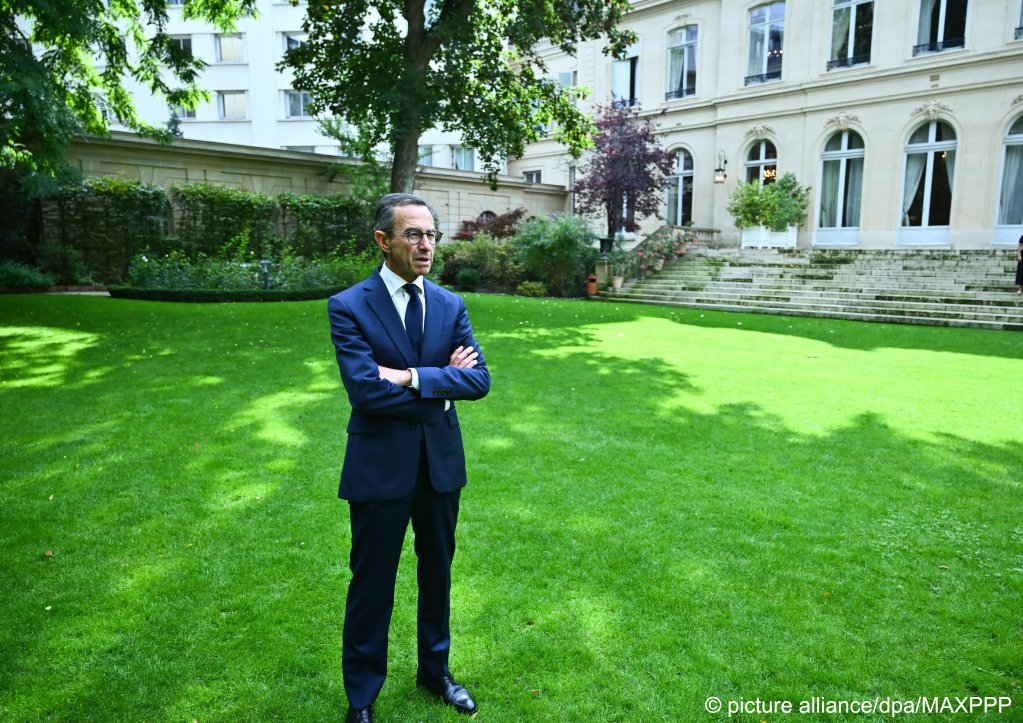Interior Minister Bruno Retailleau has said that "millions" of French people are against "mass immigration" and that the nation's economy would suffer from a large influx of people. InfoMigrants takes a closer look at his claim.
France's new Interior Minister Bruno Retailleau has spoken out against what he calls "mass immigration", implying that France could be overwhelmed by migratory flows. But is that the case?
It is a reality that immigration is increasing in France, as in most developed countries, mainly due to the increase in the world population. But this increase is in no way "massive." In 2022, seven million immigrants lived in France, equal to 10.3 percent of the total population, according to official statistics. In 1975, 7.4 percent of the French population were immigrants. And in 1946, that number was 5 percent.
"The world population is increasing and therefore there are more and more immigrants, and (these) immigrants tend to go more and more to OECD countries," Jean-Christophe Dumont, head of the international migration division at the Organization for Economic Cooperation and Development (OECD), recently explained to InfoMigrants.

Much of this large-scale movement is linked to labor migration. As a result, it might be more accurate to view these migrants as a necessary workforce for the countries to which they migrate. For Jean-Christophe Dumont, "there is no doubt that immigration contributes to increasing GDP." This is because migrants, as consumers, spend money to meet their needs in France.
In 2016, in its World Economic Outlook, the IMF estimated that a one percentage point increase in the share of immigrants in the population could lead to a 2 percent increase in GDP per capita.
Also read: Migrant women in France face 'double violence' when reporting abuse
Immigration, an opportunity?
So, can immigration be considered an opportunity for France? For many economists, the answer is evidently 'yes'.
First of all, because immigrants are generally younger than the French average, they contribute more in taxes than they cost. A 2020 report by the Institut Montaigne highlighted that Seine-Saint-Denis, the department with the largest share of people from immigrant backgrounds in France (31.6 percent), is "the eighth-highest contributing department to the financing of social protection and the one that receives the least social protection per capita."
And even if supporting immigrant families costs the state money, their presence remains very positive, many analysts believe, mainly because immigrants often occupy jobs in professional sectors experiencing labor shortages, which do not easily find takers among French citizens.
Also read: 'Social cleansing' NGOs blast pre-Olympics migrant evictions

Without foreigners, no restaurants in Paris
People from an immigrant background are overrepresented in sectors with labor shortages such as domestic work. According to official statistics, for example, in Île-de-France, six out of ten home helpers are immigrants.
The situation is similar in the service sector. In the Paris region, 50 percent of cooks and 40 percent of hotel and restaurant employees are immigrants, and a large proportion of them are often undocumented.
"When I put out an advert to recruit, only immigrants apply. These are jobs where you have to agree to work weekends and evenings until late. In Paris, without foreigners, restaurants don't work!" Xavier Denamur, a restaurant owner in Paris, told Le Monde last July.

The construction sector also relies heavily on immigrant labor. According to official statistics, 27 percent of unskilled construction workers in France are of immigrant origin. In the Paris region, that number rises to 60 percent.
Emmanuel Macron himself recognized the importance of immigration for the French economy in December 2022, in an interview with French newspaper Le Parisien.
"Let's be realistic, do we sincerely think that catering, agricultural work and many other sectors operate without immigration? (...) The answer is no!," he said.
Also read: How France's far right changed the debate on immigration
